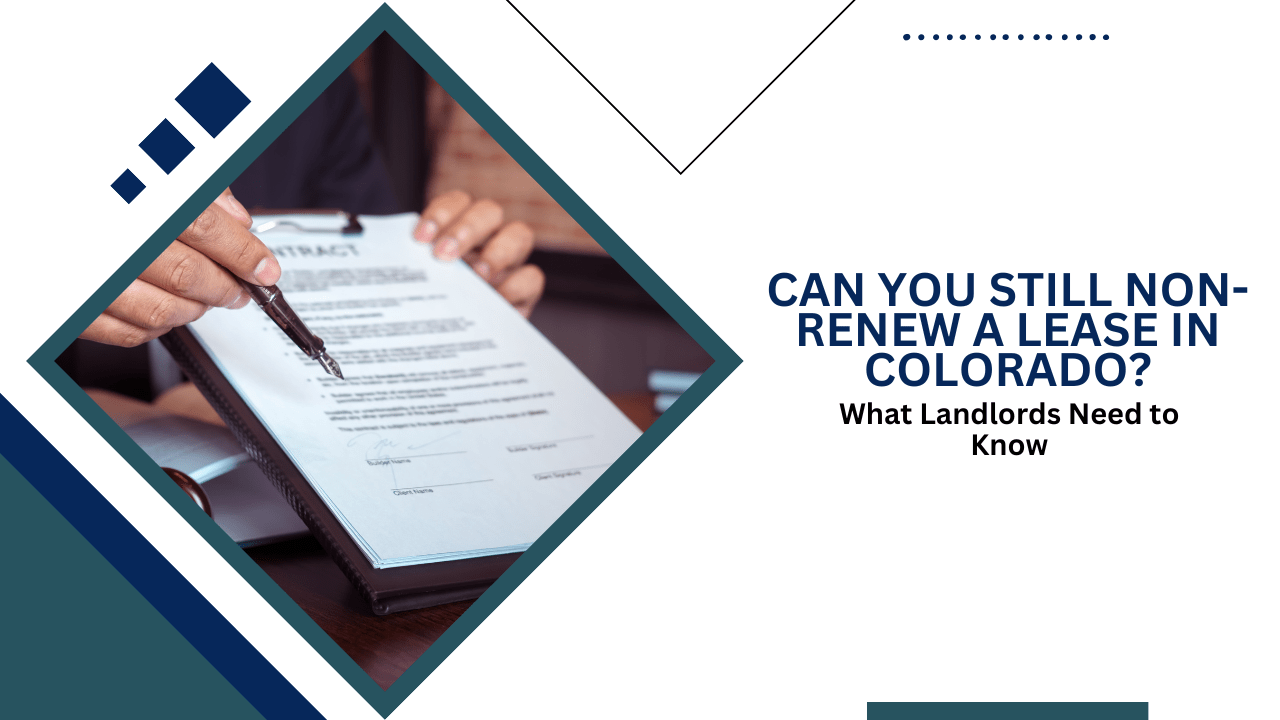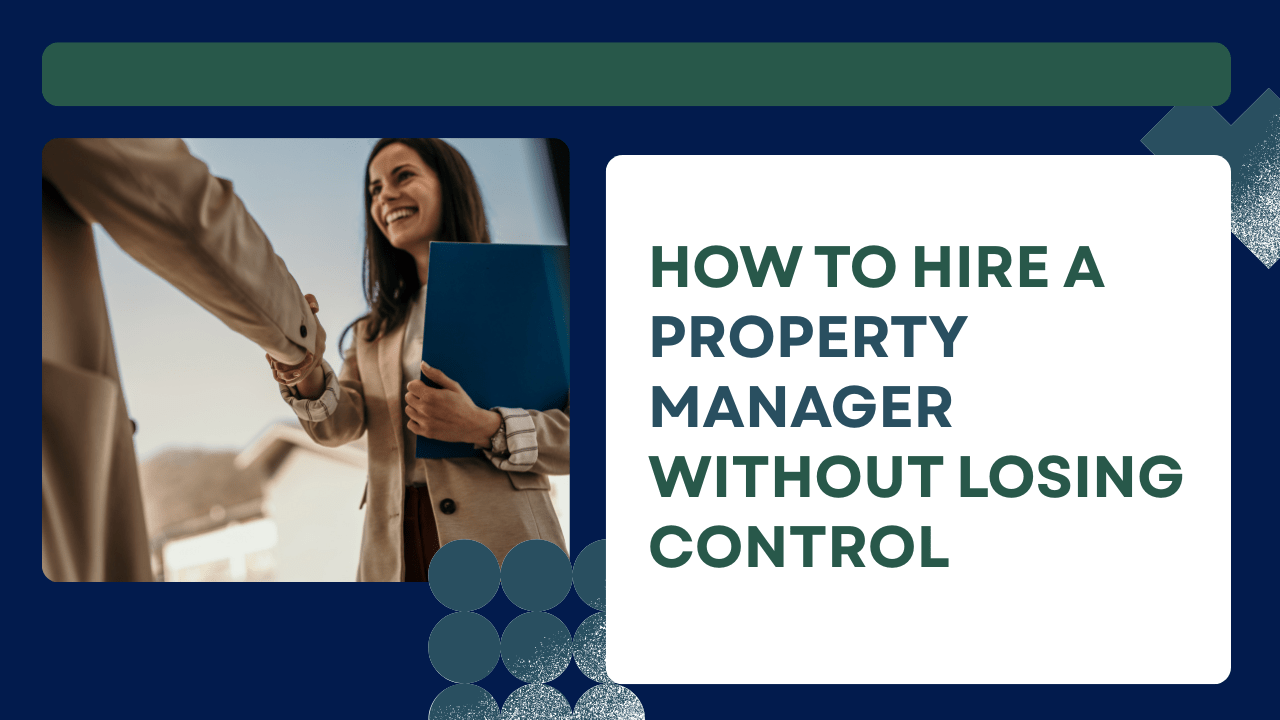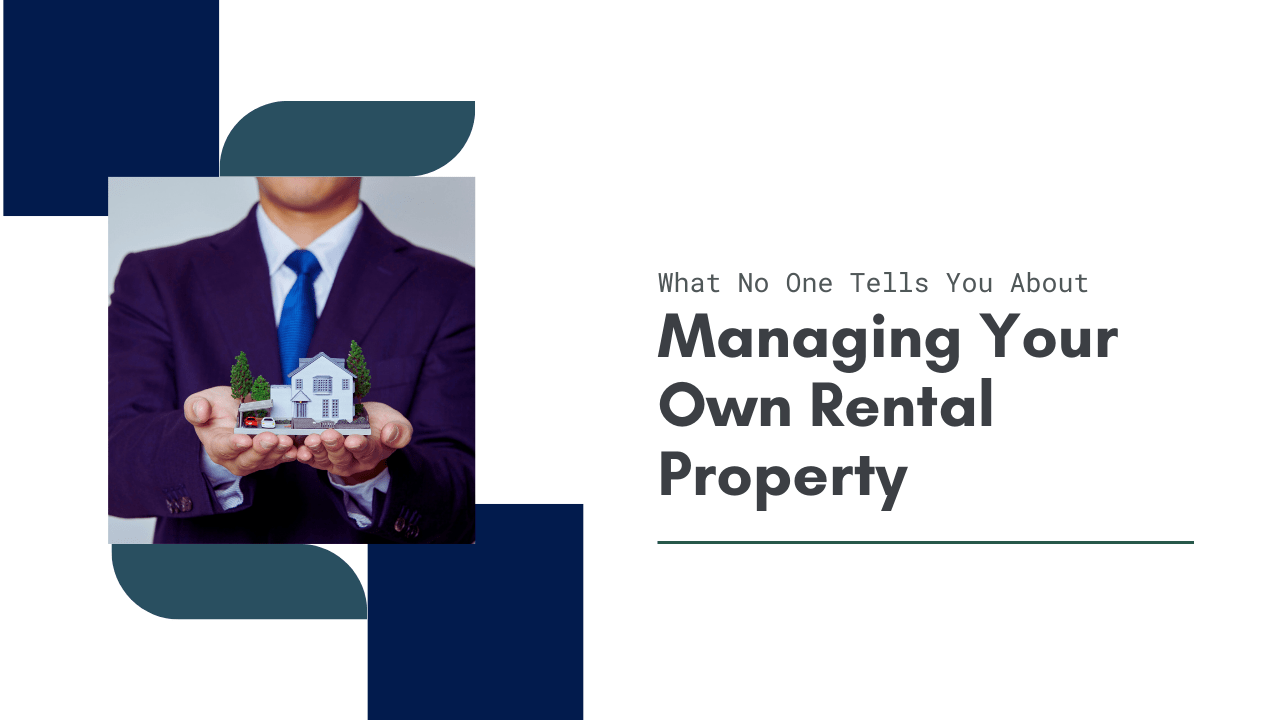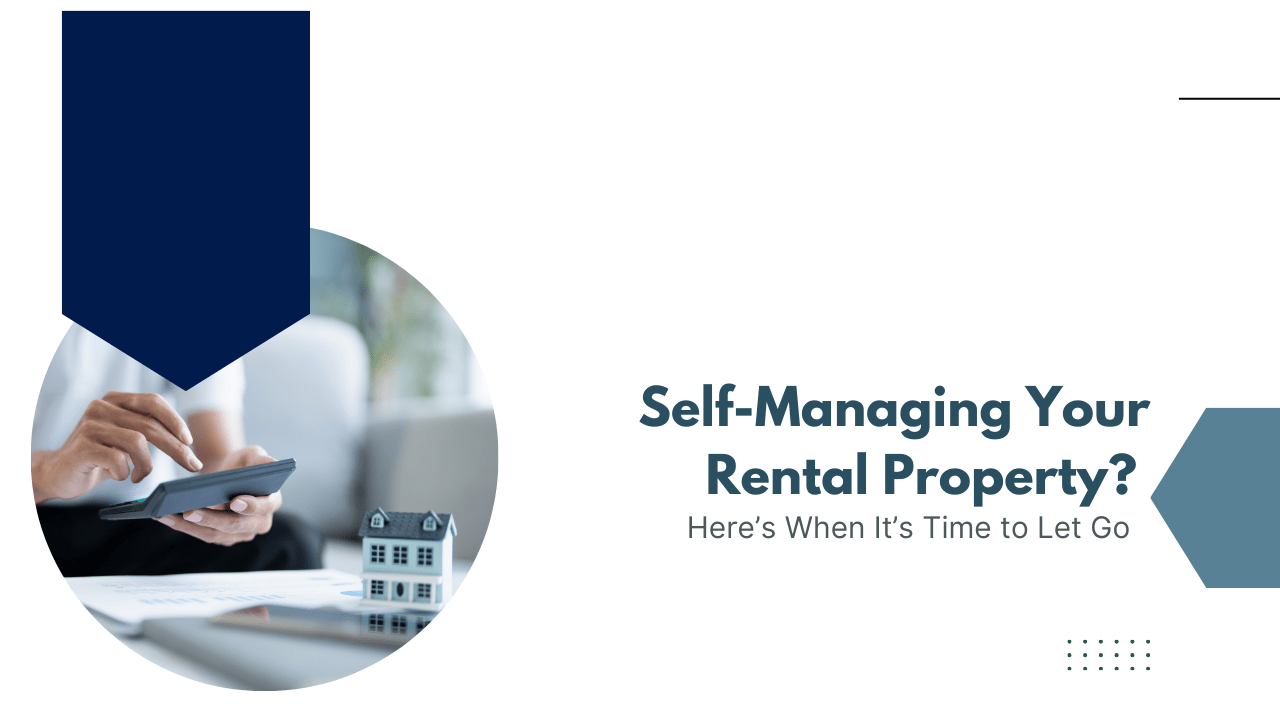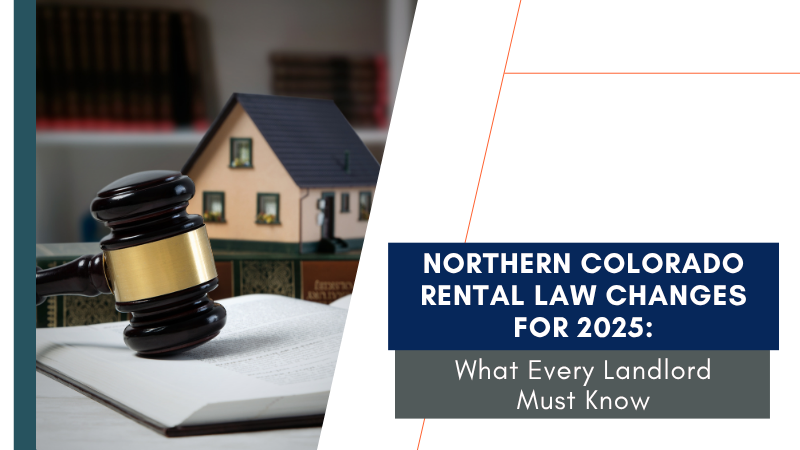If you're a landlord in
Fort Collins,
Loveland,
Wellington,
Windsor, or
Johnstown, you've likely heard about the wave of
new rental laws changing how property owners manage their real estate investments in Colorado. In a previous blog, we published a comprehensive overview of the
most important landlord-tenant laws affecting Colorado landlords in 2025.
One of the most impactful laws is
HB24-1098, which significantly limits when and how landlords can choose not to renew a lease. In this follow-up blog, we’re taking a deeper dive into this specific regulation—explaining what the law really says, what it means for landlords, and how you can stay compliant while protecting your rental business.
HB24-1098 Explained in Plain English
Under
HB24-1098, landlords must now have a
legally valid reason, or “just cause,” to end a lease with a tenant. Here's what qualifies:
Fault-Based Reasons to Non-Renew a Lease
You may legally terminate a lease if the tenant:
- Repeatedly fails to pay rent or violates lease terms.
- Creates significant disturbances or nuisances.
- Causes damage to the property beyond normal wear and tear.
These are typical grounds for eviction already, but HB24-1098 reinforces your responsibility to
document the behavior and follow specific notice timelines.
No-Fault Justifications for Lease Termination
You can also terminate a lease without the tenant doing anything wrong—but only in specific cases, including:
- You or a family member wants to move into the property.
- You’re planning major renovations or repairs that require the unit to be vacant.
- You’re selling the property and taking it off the rental market.
- You plan to demolish or convert the rental into a non-residential use.
- The tenant refuses to sign a new lease with reasonable terms.
- The tenant has a documented history of nonpayment of rent.
Even with these justifications,
you cannot simply list the unit again right away if you’ve claimed you’re taking it off the market or doing major repairs. You’ll need to prove your actions are consistent with your stated reason.
What Happens If You Break the Rules of HB24-1098?
If you terminate a lease without just cause:
- The tenant can use it as a
defense in court.
- You may be found in violation of Colorado’s housing laws.
- You could face fines, legal penalties, or be required to reinstate the tenant.
Source:
Colorado General Assembly – HB24-1098
What This Means for Colorado Landlords
If you've been managing your own rental properties for years, this law might feel like an unwelcome shift in control. You’re no longer allowed to simply not renew a lease when it ends unless you meet the very specific reasons listed above.
That means:
- You must
track all tenant behavior and lease compliance issues in writing.
- You need to
plan ahead if you're hoping to sell or renovate your rental.
- Lease templates, termination notices, and documentation must all be compliant with this new law.
Who This Impacts Most
This law affects all residential rental units in Colorado, but especially:
- Self-managing landlords who aren't up to date on changing regulations.
- Landlords with long-term tenants who are used to flexible lease renewals.
- Out-of-state or retiring landlords looking to offload properties or simplify operations.
How to Stay Compliant
1. Document Everything
If you plan to use a “just cause” reason, keep written documentation—emails, inspection reports, rent ledgers, and notices. Proper documentation can protect you in court and prevent misunderstandings with tenants.
2. Use Legal Lease Templates
Make sure your lease agreements are compliant with HB24-1098 and other recent Colorado landlord tenant laws. A generic lease you pulled from the internet or one written before 2024 is likely outdated.
3. Work with a Qualified Colorado Property Management Company
Colorado’s landlord-tenant laws are changing fast—and not all property managers keep up. At
Stegner Property Management, we review and revise every lease annually to ensure it’s fully compliant with current regulations. If you’re thinking about hiring a property manager, legal expertise is just one of several important criteria. We’ll be covering how to choose the right fit for your rental property in an upcoming blog.
If you have questions about this law or need help managing your Northern Colorado rental property,
fill out the contact form below to start a conversation. We're here to help.
What if You're Already Feeling Burnt Out?
If tracking legal changes, documentation, and tenant communication is already wearing you down, it may be time to consider
working with a professional property manager.
Even companies like
Stegner Property Management must update lease templates
every single year to stay compliant with Colorado’s new legal requirements. If it's tough even for the pros, it can be a minefield for DIY landlords.
➡️Read:
Is It Time to Let Go? A Guide for Self-Managing Landlords
Final Thoughts: You Can Still Non-Renew—But Only for the Right Reasons
HB24-1098 doesn’t eliminate your ability to manage your property—it just raises the bar. Landlords who are proactive, well-informed, and careful with documentation will still thrive under the new rules.
But one wrong step could lead to court battles, fines, or even being forced to keep a tenant you didn’t intend to.
If you're unsure whether your current lease renewal or termination plan is legal, now is the time to
consult with an attorney who specializes in Landlord-Tenant Law or with a
qualified property manager who keeps up with the local market and regulatory landscape.
How Stegner Property Management Helps Northern Colorado Landlords Stay Compliant

